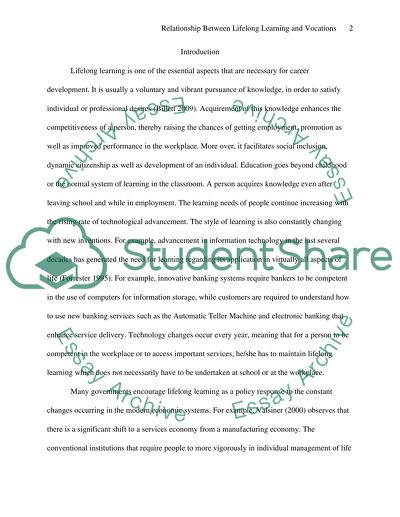Cite this document
(“The relationship between lifelong learning and vocations Essay”, n.d.)
The relationship between lifelong learning and vocations Essay. Retrieved from https://studentshare.org/miscellaneous/1557273-the-relationship-between-lifelong-learning-and-vocations
The relationship between lifelong learning and vocations Essay. Retrieved from https://studentshare.org/miscellaneous/1557273-the-relationship-between-lifelong-learning-and-vocations
(The Relationship Between Lifelong Learning and Vocations Essay)
The Relationship Between Lifelong Learning and Vocations Essay. https://studentshare.org/miscellaneous/1557273-the-relationship-between-lifelong-learning-and-vocations.
The Relationship Between Lifelong Learning and Vocations Essay. https://studentshare.org/miscellaneous/1557273-the-relationship-between-lifelong-learning-and-vocations.
“The Relationship Between Lifelong Learning and Vocations Essay”, n.d. https://studentshare.org/miscellaneous/1557273-the-relationship-between-lifelong-learning-and-vocations.


